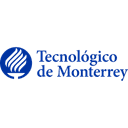This course is part of Lean Six Sigma.
Este curso aborda herramientas selectas de las etapas de Mejora y Control de la metodología DMAIC de Lean Six Sigma, combinando enfoques cuantitativos y cualitativos. En la etapa de Mejora, se enseña a construir modelos matemáticos predictivos mediante regresión lineal múltiple y polinomial, junto con herramientas Lean como Kanban y Mantenimiento Productivo Total (TPM) para mejorar el desempeño de procesos al reducir paros por falta de materiales y fallas en equipos. La etapa de Control introduce el Control Estadístico de Procesos para monitorear el desempeño y detectar patrones problemáticos antes de que generen productos defectuosos. Complementariamente, se presentan técnicas Lean como Poka Yoke para prevenir errores y el reporte A3 para solucionar problemas sistemáticamente. El curso prepara a los participantes para identificar causas raíz mediante herramientas cuantitativas, controlar procesos con métodos estadísticos y estabilizarlos a través de principios Lean.
4.8
(40 ratings)
4,054 already enrolled
Spanish
What you'll learn
Construir modelos predictivos mediante regresión múltiple y polinomial
Implementar Control Estadístico de Procesos para monitorear variables críticas
Establecer sistemas de flujo pull mediante Kanban para mejorar el flujo de trabajo
Aplicar técnicas de nivelación de producción (Heijunka) para estabilizar procesos
Implementar Mantenimiento Productivo Total (TPM) para reducir fallas en equipos
Desarrollar sistemas Poka Yoke para prevenir errores en procesos
Skills you'll gain
This course includes:
1 Hours PreRecorded video
15 assignments
Access on Mobile, Tablet, Desktop
FullTime access
Shareable certificate
Get a Completion Certificate
Share your certificate with prospective employers and your professional network on LinkedIn.
Created by
Provided by

Top companies offer this course to their employees
Top companies provide this course to enhance their employees' skills, ensuring they excel in handling complex projects and drive organizational success.





There are 4 modules in this course
Este curso cubre herramientas avanzadas de las etapas de Mejora y Control del ciclo DMAIC de Lean Six Sigma. Los estudiantes aprenderán a desarrollar modelos predictivos mediante regresión múltiple y polinomial para identificar factores relevantes en procesos productivos. También se abordan metodologías Lean como Kanban y TPM para establecer sistemas pull y mantener la estabilidad operativa. En la etapa de Control, se profundiza en el Control Estadístico de Procesos y técnicas como Jidoka y Poka Yoke para prevenir errores y mantener las mejoras implementadas. El curso combina conceptos teóricos con aplicaciones prácticas, preparando a los participantes para implementar soluciones efectivas a problemas complejos.
Análisis de regresión múltiple
Module 1 · 5 Hours to complete
Control estadístico de proceso
Module 2 · 4 Hours to complete
Herramientas de estabilidad
Module 3 · 4 Hours to complete
Herramientas de Solución y control
Module 4 · 6 Hours to complete
Fee Structure
Individual course purchase is not available - to enroll in this course with a certificate, you need to purchase the complete Professional Certificate Course. For enrollment and detailed fee structure, visit the following: Lean Six Sigma
Instructors
Doctor of Administrative Engineering
Mohammad Reza Azarang Esfandiari is a professor at Tecnológico de Monterrey, where he has been part of the Industrial and Systems Engineering Department since 1986. He earned his Doctorate in Administrative Engineering from City University of London in 1998, a Master’s degree in Administration from Tecnológico de Monterrey in 1992, and a Master’s degree in Industrial Engineering from Queen’s University of Belfast in 1981. He also holds an Electronic Engineering degree with honors from Oxford Brookes University, completed in 1980. Dr. Azarang specializes in process improvement and quality management methodologies, including Lean Six Sigma. On Coursera, he offers courses such as "Introducción a Lean Six Sigma" and others focused on defining, measuring, analyzing, improving, and controlling processes. His work emphasizes practical applications of Lean Six Sigma principles to enhance organizational efficiency and performance.
Associate Professor
Alfredo Santana Reynoso is an Associate Professor at Tecnológico de Monterrey. He holds a degree in Industrial and Systems Engineering from Tecnológico de Monterrey's Guadalajara campus, a Master's in Project Engineering from the Universidad de Guadalajara, and a Ph.D. in Industrial Engineering with a focus on Quantitative Analysis from the University of South Florida. His expertise is further enhanced by several professional certifications, including Six Sigma Black Belt from the American Society for Quality (ASQ), Certified SAP Associate, and Project Management Professional (PMP) from the Project Management Institute. Dr. Santana's academic work is complemented by his practical experience in various roles such as Planning Head, Production Manager, Technical Manager, and Corporate Project Coordinator. His research interests include mathematical modeling and simulation for decision-making, as well as process improvement through Lean Six Sigma methodologies. On Coursera, he teaches courses related to quality management and process optimization, including "Incrementar - Parte 2 y Controlar."
Testimonials
Testimonials and success stories are a testament to the quality of this program and its impact on your career and learning journey. Be the first to help others make an informed decision by sharing your review of the course.
Frequently asked questions
Below are some of the most commonly asked questions about this course. We aim to provide clear and concise answers to help you better understand the course content, structure, and any other relevant information. If you have any additional questions or if your question is not listed here, please don't hesitate to reach out to our support team for further assistance.





